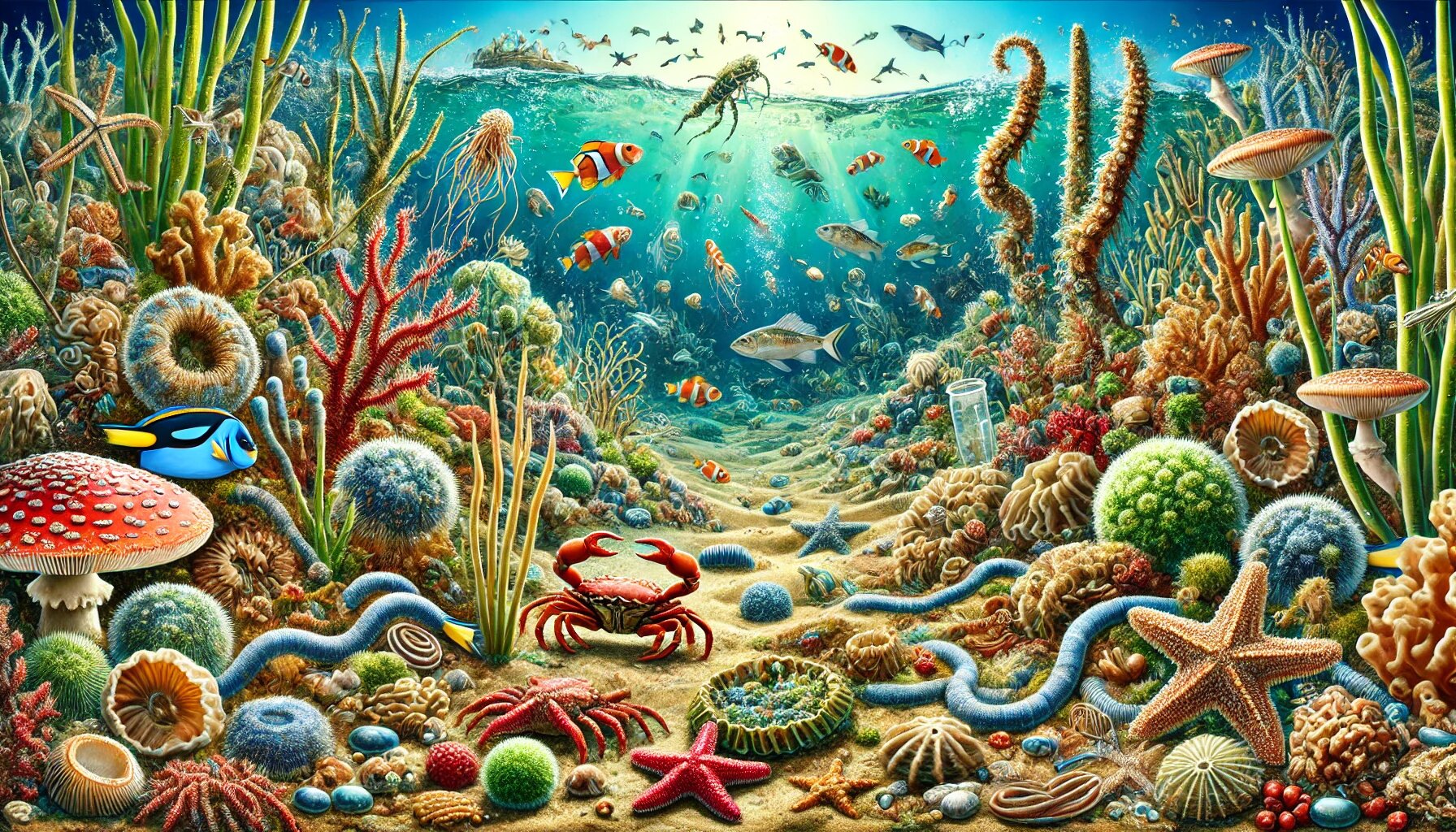

When we think about the ocean, our minds often drift to images of majestic whales, colorful coral reefs, or schools of shimmering fish. But beneath the surface lies a hidden world of hardworking organisms that keep the marine ecosystem running smoothly. These are the ocean decomposers—nature’s cleanup crew. From bacteria and fungi to marine worms, echinoderms, crustaceans, and mollusks, these decomposers play a vital role in recycling nutrients and maintaining the health of the ocean. Let’s dive into the fascinating world of ocean decomposers and explore their incredible contributions to marine life.

Ocean decomposers are organisms that break down dead plants, animals, and other organic matter into simpler substances. This process, called decomposition, is essential for recycling nutrients back into the ecosystem. Without decomposers, the ocean would be cluttered with dead material, and essential nutrients would be locked away, unavailable for other marine life.
Think of decomposers as the ocean’s janitors. They might not get the spotlight, but without them, the marine world would be a mess. And just like janitors, they come in all shapes and sizes, each with its own unique way of getting the job done.
1. Nutrient Recycling: One of the most important roles of ocean decomposers is recycling nutrients. When plants and animals die, their bodies contain valuable nutrients like carbon, nitrogen, and phosphorus. Decomposers break down these materials, releasing the nutrients back into the water.
2. Cleaning Up the Ocean: Imagine what the ocean would look like without decomposers. Dead fish, seaweed, and other organic matter would pile up, creating a smelly, unsightly mess. Decomposers prevent this by breaking down dead material and keeping the ocean clean.
3. Supporting Biodiversity: By recycling nutrients and cleaning up dead material, decomposers create a healthy environment for other marine life. Coral reefs, seagrass beds, and other habitats rely on decomposers to maintain the balance of nutrients.
4. Fighting Pollution: Some decomposers, like certain types of bacteria, can break down pollutants like oil and plastic. While they can’t solve the ocean’s pollution problems on their own, they play a crucial role in mitigating the impact of human activities.
Ocean decomposers might not be as glamorous as dolphins or as colorful as clownfish, but they’re just as important. Without them, the ocean would be a very different place—dirtier, less productive, and far less diverse. By breaking down dead material and recycling nutrients, they keep the marine ecosystem healthy and thriving.
So, the next time you’re at the beach, take a moment to appreciate the hard work of these unsung heroes. Whether it’s the bacteria in the sand, the crabs scuttling along the shore, or the sea stars clinging to the rocks, they’re all playing their part in keeping the ocean clean and full of life.
Ocean decomposers are the backbone of the marine ecosystem. They might not get the credit they deserve, but their work is essential for the health and survival of the ocean. From bacteria and fungi to marine worms, echinoderms, crustaceans, and mollusks, these organisms are the ultimate team players, working together to keep the ocean clean and full of life.
So, here’s to the ocean’s decomposers—the unsung heroes of the deep. They might not have the glamour of a shark or the charm of a sea turtle, but they’re just as important. Without them, the ocean would be a very different place. Let’s give them the appreciation they deserve and remember that even the smallest organisms can make a big difference.